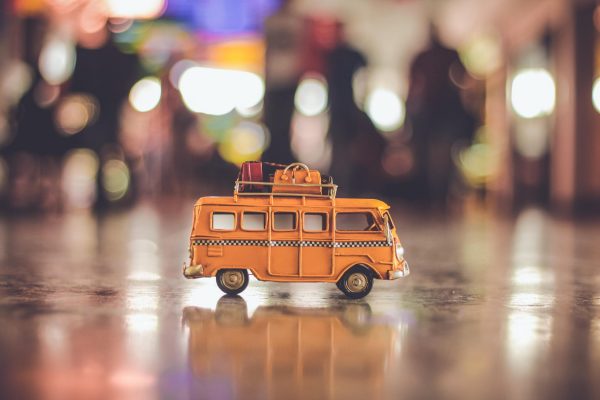When visiting a new city, it is better to err on the side of caution.
Being Security conscious
People have lost expensive jewellery from their neck or their handsets from their ears while taking public transport. In the 80s and 90s, visiting parts of Lagos came with the need to be security conscious. These days, Northern /North Eastern Nigeria is considered unsafe. And it’s advisable to check security reports from that region before deciding to travel. However, crime is no stranger to any city in the world and it shouldn’t dampen your zeal to tour cities within Nigeria.
Here are things you can do to improve your personal security on a trip
1. Keep a low profile
Don’t make it obvious that you are visiting a town for the first time. Make efforts to blend in – dress like the locals, know their customs, there are no awards for being a JJC (Johnny Just Come).
Research where you are going to before you get there; this will reduce your fears and make you seem less like a novice. Know of your surroundings, research what fits in with the location you are in so you can spot what doesn’t.
Here’s an example: If you go swimming in Wikki Springs during a Muslim holiday and you notice people’s swimwear are more covered up than yours, excuse yourself. Wait till the crowd leaves before you take a dip; respecting their sensibilities can avert crisis. Try not to draw attention to yourself. Sometimes, tour agencies arrange for extra security detail that use sirens when going through areas with high insecurity profile. This is may seem like an attention drawing approach but it is necessary for your safety. Follow the instructions of the armed officers and stay within their company as much as you can.
2. Always have a Plan
Settle your hotel accommodation and mode of transportation in the new city before you embark on a trip. Try not to use unmarked cars or hitch rides with strangers. Read a map or use Google Maps app to get directions to your destination. Evaluate the distance to your other destinations so a tricky cabbie won’t play a fast one on you by taking you in a circle where a short straight distance would suffice.
Ensure you have a detailed list of your travel itinerary before you embark on the trip. Share it with close friends and or relatives so they know where you will be on each day of your trip away. They can help notify significant authorities of an anomaly.
As much as possible, avoid changing currencies at the airport so you don’t attract unnecessary attention from petty thieves; do that before you embark on a trip.
Use a money belt to stash cash and other important items like your debit card underneath your clothes in case your wallet gets stolen. Also, make contingency plans for what to do if trouble arises. For instance, you are in Jos and a crisis breaks out, what do you do? You can decide with your tour guide where everyone should meet up if something bad arises. Or let’s say you were driving through Lokoja and a flood hits causing an overflow from the confluence, what will you do? Ask yourself, ‘How will I react if a natural disaster hits?’ If you have already written a list of emergency numbers to call the Police or Disaster Relief Agencies, it should be easy to get help fast. We are not saying become a doomsday prophet but make plans so you don’t get surprised by happenstance.
3. Secure your Hotel Room
Always read reviews and talk with people who have lodged in hotels in whatever city you travel to. It helps you make an informed decision and choose a place with no surprises. Most hotels require that you drop the key at the desk during your stay for housekeeping. To protect your property, use a lock on your bags; if you have important documents like your passport in the bag. Also, place a doorstop beneath the room door when you are in it. This will give anyone who plans a break in through the door a hard time getting in. Don’t invite strangers to your room, meet with them in the hotel lobby or in a crowded area. If you feel you are being watched on a hidden camera, do a visual sweep your hotel room. If you find one or even if you don’t but you can’t seem to shake the feeling, leave the hotel or that vicinity.
4. Conduct yourself appropriately
Let your body language signal confidence; hold your head up high, walk with purpose and don’t look worried/scared. Avoid moving around or use an ATM at night. Remove yourself from anywhere where there is violence, civil disturbance, riot or fights. If you are faced with a mugging, don’t play the hero; let them take your cash/valuables rather than for them hurt or kill you. Better yet, keep your eyes on your valuables, don’t leave them unguarded. Stay sober and vigilant. Stick to parts of the city that include women, children and families; they are usually safer. If you need help, ask a local you feel comfortable with or the hotel staff. They should be able to help you interact with those in the new environment you find yourself or advice you on the safe zones in the town. Let’s not forget; avoid sharing real-time information in public domain like Facebook. People with ill intent can act on it, like rob your home since they know you are absent. Travel with a group but if you are travelling solo, ensure you make friends along the way. There is strength/safety in numbers.
Travel safety is all about staying alert, reducing your exposure to unavoidable risks and preparing for the unexpected.
As you travel, stay safe.


